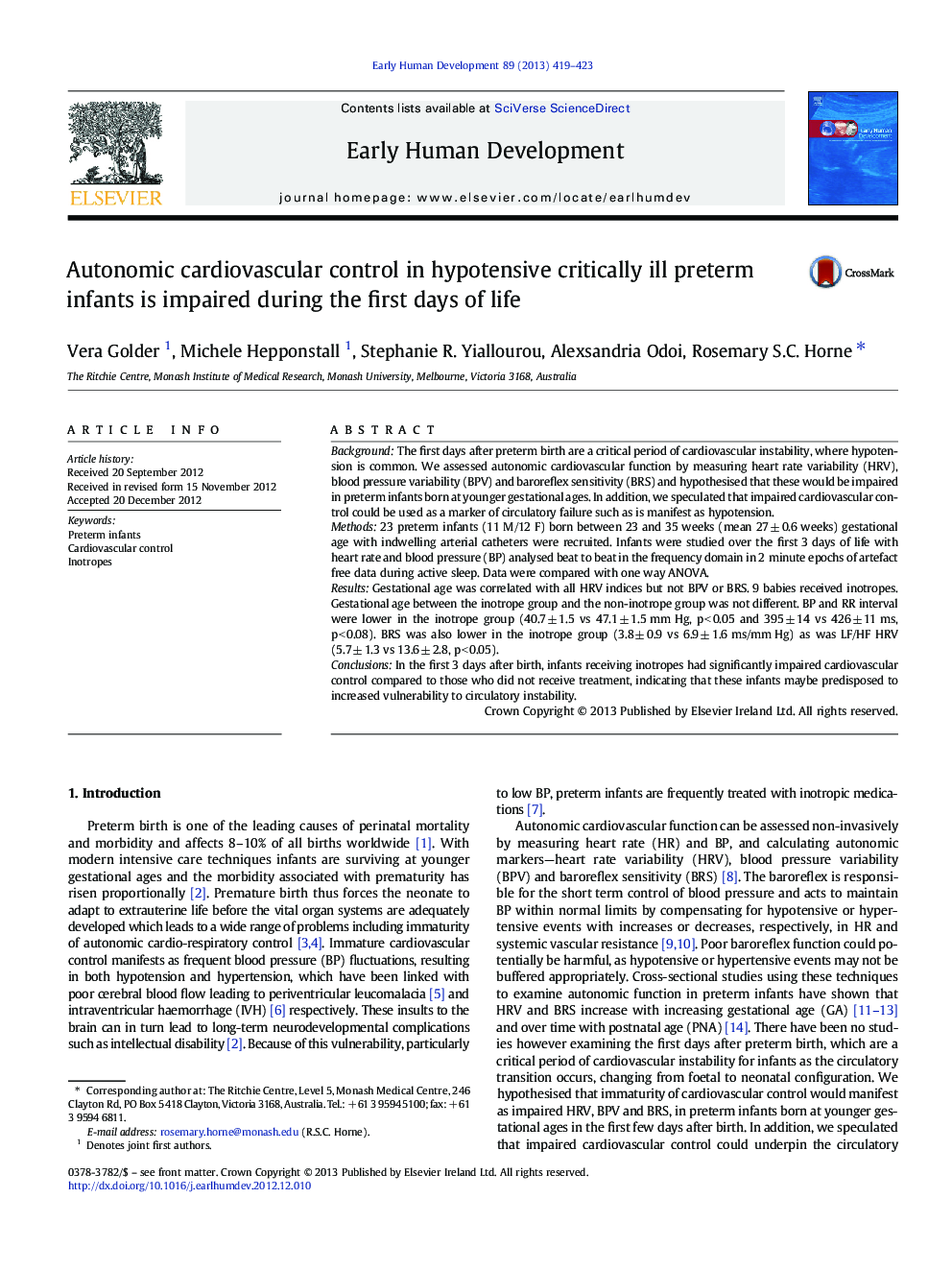| Article ID | Journal | Published Year | Pages | File Type |
|---|---|---|---|---|
| 3916688 | Early Human Development | 2013 | 5 Pages |
BackgroundThe first days after preterm birth are a critical period of cardiovascular instability, where hypotension is common. We assessed autonomic cardiovascular function by measuring heart rate variability (HRV), blood pressure variability (BPV) and baroreflex sensitivity (BRS) and hypothesised that these would be impaired in preterm infants born at younger gestational ages. In addition, we speculated that impaired cardiovascular control could be used as a marker of circulatory failure such as is manifest as hypotension.Methods23 preterm infants (11 M/12 F) born between 23 and 35 weeks (mean 27 ± 0.6 weeks) gestational age with indwelling arterial catheters were recruited. Infants were studied over the first 3 days of life with heart rate and blood pressure (BP) analysed beat to beat in the frequency domain in 2 minute epochs of artefact free data during active sleep. Data were compared with one way ANOVA.ResultsGestational age was correlated with all HRV indices but not BPV or BRS. 9 babies received inotropes. Gestational age between the inotrope group and the non-inotrope group was not different. BP and RR interval were lower in the inotrope group (40.7 ± 1.5 vs 47.1 ± 1.5 mm Hg, p < 0.05 and 395 ± 14 vs 426 ± 11 ms, p < 0.08). BRS was also lower in the inotrope group (3.8 ± 0.9 vs 6.9 ± 1.6 ms/mm Hg) as was LF/HF HRV (5.7 ± 1.3 vs 13.6 ± 2.8, p < 0.05).ConclusionsIn the first 3 days after birth, infants receiving inotropes had significantly impaired cardiovascular control compared to those who did not receive treatment, indicating that these infants maybe predisposed to increased vulnerability to circulatory instability.
